How sustainable (and ethical) is Blueland?
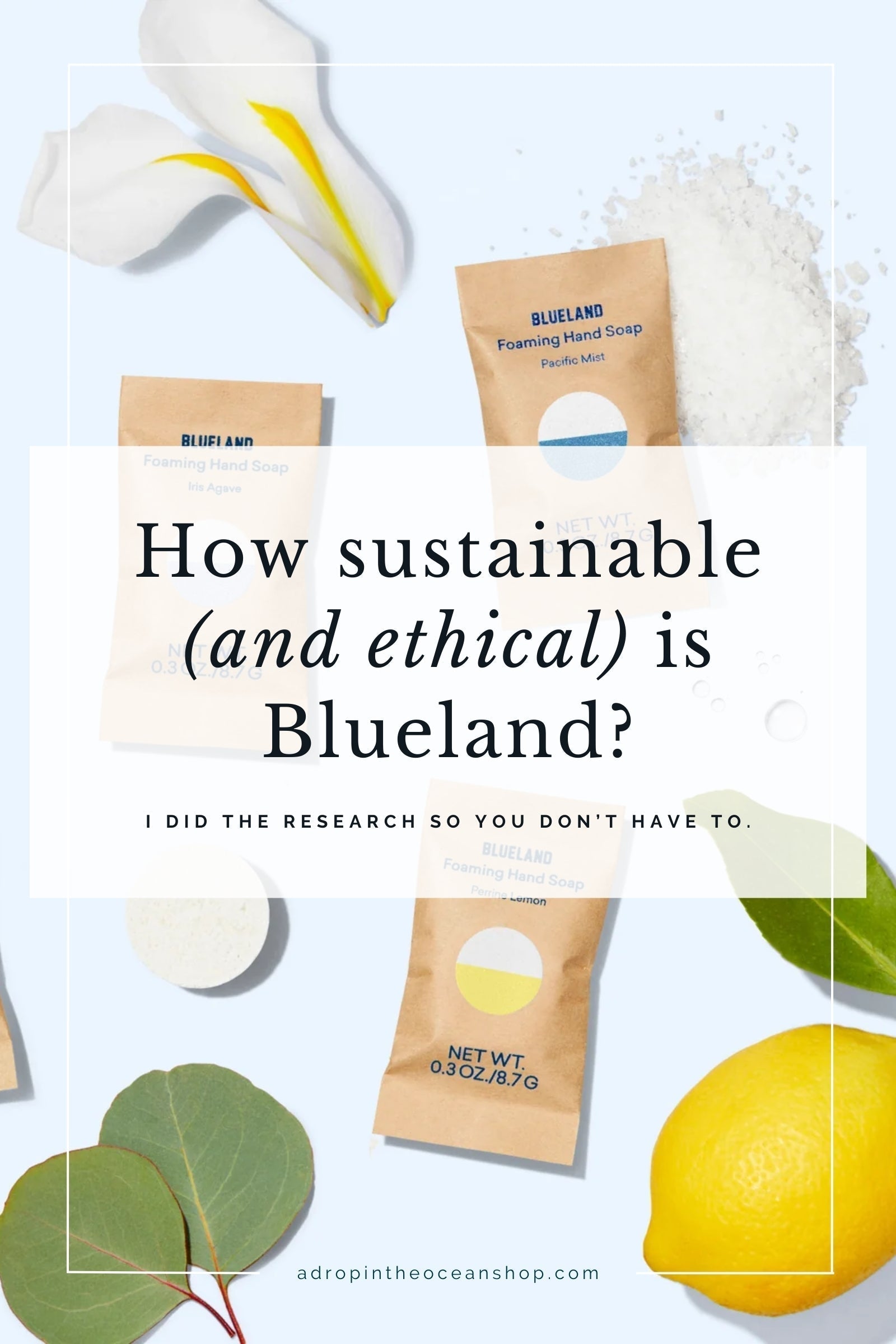
This post first appeared in our weekly Make Waves Mondays email series on April 14, 2025.
Hey hey friend!
We’re finally doing the thing I’ve been saying I’m gonna do for YEARS now.
You’ve asked for it.
Instagram has asked for it.
Blog comments have asked for it. (Shout-out to EcoWarrior Jami for leaving the most recent comment a few days ago that finally lit the fire for me to write this today!)
It’s time.
Today…I’m spilling all the tea on why I have beef with Blueland.
Let’s. Freaking. Go.
✌😎
First, let me start by saying in case you don’t already know that I have really high standards. For like, every-dang-thing. I’ve been told this my whole life. So I’ll be very upfront with you and say that there may be parts of this where you’re like, “Okay sure, Krystina, but like…maybe let’s not let perfect be the enemy of good…?”
And to that I say, sure! Absolutely. But I also know that this community trusts me because I tell it like I see it, and because of those really high standards. And this is mostly (but definitely not completely) an opinion piece. So take what you want from it, and let me know at the end what you think!
The PVA Debacle
So once upon a time, I didn’t really have any thoughts about Blueland. I knew they existed, but I wasn’t blown away by the concept, but I also didn’t have any negative feelings towards them.
But then, on July 23, 2021, another “green cleaning” company sent out an email to their retailers about a “new study” that was published about the sustainability (or no-so-sustainability) of PVA.
The newsletter included 3 resources, one of which literally did not mention PVA anywhere in it, one was essentially a bullet-point list of features of PVA, and the third was that PVA study. And in that study, there wasn’t really any new information. The article itself even said that there wasn’t really any new information found, it didn’t accurately represent how PVA behaves in natural environments, and that more research needed to be done on the topic.
But the gist of the study was this: PVA doesn’t biodegrade in the same way something like a banana peel would.
Okay, yeah, obviously. It’s a synthetic polymer.
But it wasn’t until I got to the very end of the article that my Greenwashing Senses started tingling.
The article was paid for by Blueland - a direct competitor to Dropps, who the study was clearly aimed at - and then shared and distributed by yet another Dropps competitor.
If you wanna read more about this article and why we chose to continue selling Dropps after it was released and my thoughts on the whole matter, definitely check out our blog post “What is PVA and is it sustainable?” ‘Cause I’m gonna shift gears a little here.
This article had the zero waste world in a tizzy. Zero waste shop owners started pulling Dropps from their shelves in a panic.
And at the time, Blueland did not distribute their products at all. The only place you could purchase Blueland products was through their own website. They had a huge incentive to fund a study that they could use to attack their biggest competitor and keep a larger share of the already-small market on their website, leading to even more sales of other Blueland products.
It was freaking brilliant.
Ya know, if you’re into the whole capitalism thing.
Heeeere comes wholesale!
Okay so like I said, summer of 2021 Blueland did not sell its products anywhere except Blueland’s website, which I’m sure saw a massive surge in traffic and revenue after the “Blueland Study” was released.
But fast forward to fall of 2022 and guess what’s released…!
Blueland’s wholesale program.

I know. Shocker, right? Now that they’ve got everyone all worked up about Dropps, time to get their products on other peoples’ shelves.
So they got on Amazon.
They got in The Container Store.
They got in Target.
And they got in small zero waste shops.
And from my understanding, it sounds like the Blueland products were selling well in the small shops, and everyone who stocked them was restocking regularly.
Buh-bye, small shops!
FWIW, this is where my knowledge becomes fully secondhand, based on what I’ve read from other zero waste shop owners.
Now, within the last 6 months, Blueland has started pulling out of small shops, putting all of their efforts back into direct-to-consumer and boosting sales at Costco.
Back in July, Blueland discontinued what was apparently one of the best-selling products for small zero waste shops, with no warning and no communication of plans to replace the product.
One shop owner was even told by a Blueland rep after finding out they were a refill store, “It appears we’re not a fit. I’ll close your application,” with zero explanation. And another Blueland rep apparently left the company without any transition to a new rep, so the shops that were selling Blueland products suddenly had no contact at the company.
And just since the beginning of the year, Blueland has been cancelling wholesale orders for these small shops and removing products from their wholesale website - again without warning - and when asked about it just said they “don’t have a date yet for when they will be available.”
So just to summarize here for a second, Blueland…
…was founded in mid-2019 and refused to work with small zero waste shops who are out here working hard to bring sustainability and sustainable products to the masses (many shops tried!) (I actually didn’t realize that A Drop in the Ocean is older than Blueland until today lol)
…released a study in 2021 basically starting a witch hunt for their most direct competitor, driving up their own sales as a result
…finally started allowing other shops to sell their products a year later
…and are now all but cutting out the small shops again to focus only on the big guys.
But honestly, it’s not surprising.
To date, Blueland has raised $35 million in funding in just a few years. That’s a whole lot of rich people who are expecting certain returns on their investments.
Compostable…? Biodegradable…?
Okay so the other issue I have with Blueland is their compostability and biodegradability claims.
According to Blueland, their tablet wrappers are made from FSC-certified paper, PLA (polylactic acid), and aluminum. They also claim that the wrappers “can be composted and [are] also biodegradable.”
Obviously, paper is compostable and biodegradable, so that’s cool - we can leave that one alone.
PLA…not so much.
I actually already have a whole blog post about PLA and why it’s not the eco-solution it’s been made out to be. It’s a few years old at this point but I still stand by everything I said in it 100%.
The tl;dr version is this: unless it’s put in very specific conditions, PLA behaves exactly like PET (or Plastic #1).
If it ends up in the ocean, it’s not going to biodegrade. If it ends up on the side of the road, it’s not going to biodegrade. If it ends up in a landfill, it’s not going to biodegrade.
✨ If it ends up in your backyard compost pile, it’s not going to biodegrade. ✨
PLA ONLY biodegrades in the way we want it to when it’s sent to an industrial composting facility that accepts products made from PLA - which most do not, and those that do often require the product be BPI-certified.
Which, spoiler alert, Blueland products are not.

But does Blueland specify INDUSTRIAL composting in all of their compostability claims?
No siree, they do not.
I also just want to point out the INSANE levels of hypocrisy here, in case you missed it:
Blueland funded a study with the intention of discrediting their most direct competitor for using PVA in their products, claiming that PVA doesn’t break down in the natural environment, meanwhile Blueland is using PLA in their products, which also does not break down in the natural environment.
Okay onto the aluminum.
The question at hand: is aluminum compostable or biodegradable? (Blueland is claiming both, and they are different things, but for simplicity here we’re just gonna say “or.”)
Friend, I wish that I could quantify how many hours I have spent over the last 4 years trying to get to the bottom of this question, specifically about Blueland’s wrappers.
BECAUSE YOU WOULD THINK that a company that prides itself on being “the most sustainable way to clean” would want to brag EVERYWHERE about the really cool science behind their pouches and how in the heck aluminum of all things can be successfully composted and completely returned to soil with zero residue and actually improve the soil conditions in the process. (aka the definition of “compostable”)
Right???
But no. I cannot find a SINGLE source that lays that all out. Even a Google Scholar search for “aluminum compostability” only gets results for “plastic compostability.”
And Blueland just keeps repeating the phrase “thin enough to be compostable” with no certifications, studies, or even blog posts talking about it any more than that.

So given all of this, I feel pretty darn confident saying that no, Blueland tablet pouches are not actually compostable - industrially or at home.
If you happen to be a professional materials scientist and have peer-reviewed articles to prove me wrong, please send them my way. I would love to read them!
The first? Really??
Blueland has this absolutely bonkers claim on its website and in its Facebook and Instagram ads that they created the “first plastic-free toilet cleaner.”
lol. That’s cute, Blueland.
We launched our zero waste and plastic-free toilet cleaner bombs in December 2020.
Blueland released theirs in 2021.
AND TO BE CLEAR - I have never and would never, ever, EVER claim to have the world’s first plastic-free toilet cleaner. Literally would never.
And yet Blueland’s just out here doing it.
Absolutely wild.
“Forever” Bottles?
Obviously since I’ve never used Blueland products myself, I can’t speak to this personally, but I have read SO MANY REVIEWS that Blueland’s “Forever Bottles” and pumps break after just a few months.
If you’re getting so many complaints that your “forever” products are breaking easily, and your entire business model is based on “zero waste”…maybe go back to the drawing board and pick a better material…?
So in summary…
Obviously, ya girl’s got beef with Blueland.
Have I ever tried their products? I have not. And I will not, either.
I’m not out here trying to defame a woman of color who started a multi-million dollar company. Good for her for doing the thing.
But I AM always out here trying to give it to you straight.
The zero waste and sustainability space is so complex and rife with greenwashing. I know that it’s so hard to sort through the BS to find what’s actually happening.
And honestly, who knows if the Blueland Study had never happened if I’d feel as passionate about all the other stuff as I do 🤷
But it did, and I do, and I’ve lost count of how many times people have asked me to share more about why I feel the way I do about Blueland, so here we are, friend lol
I do hope this was helpful, friend, and I would LOVE to hear your thoughts on the matter. You know the drill - comment below and let’s chat about it!
(Header background image from Blueland's website)
Related:
4 Reasons to Stop Buying Foaming Hand Soap
Greenwashing blog posts
Is Boxed Water really better?
My Exact Step-by-Step Process for Spotting Greenwashing


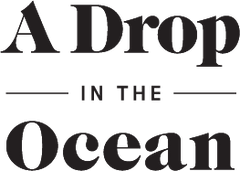


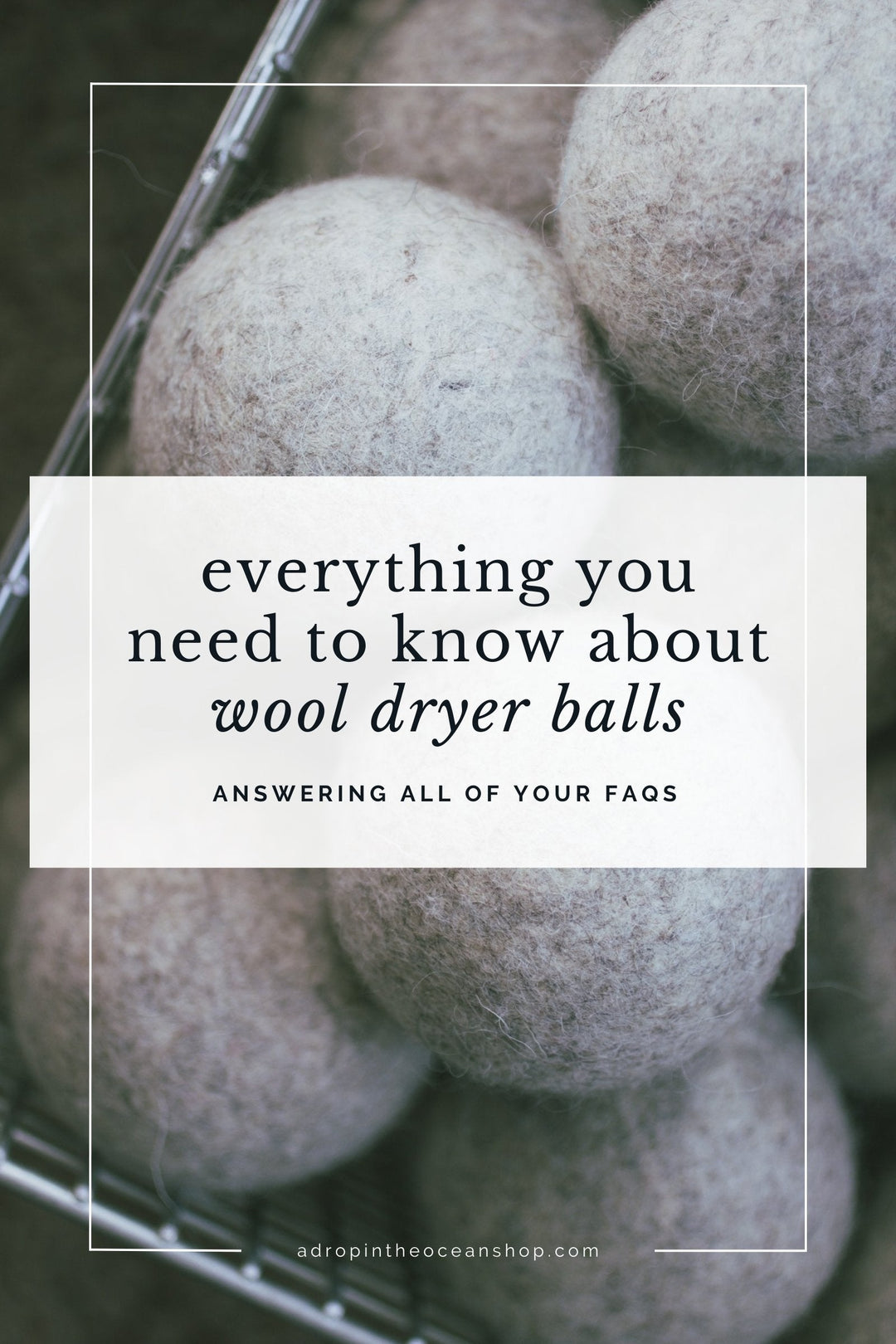
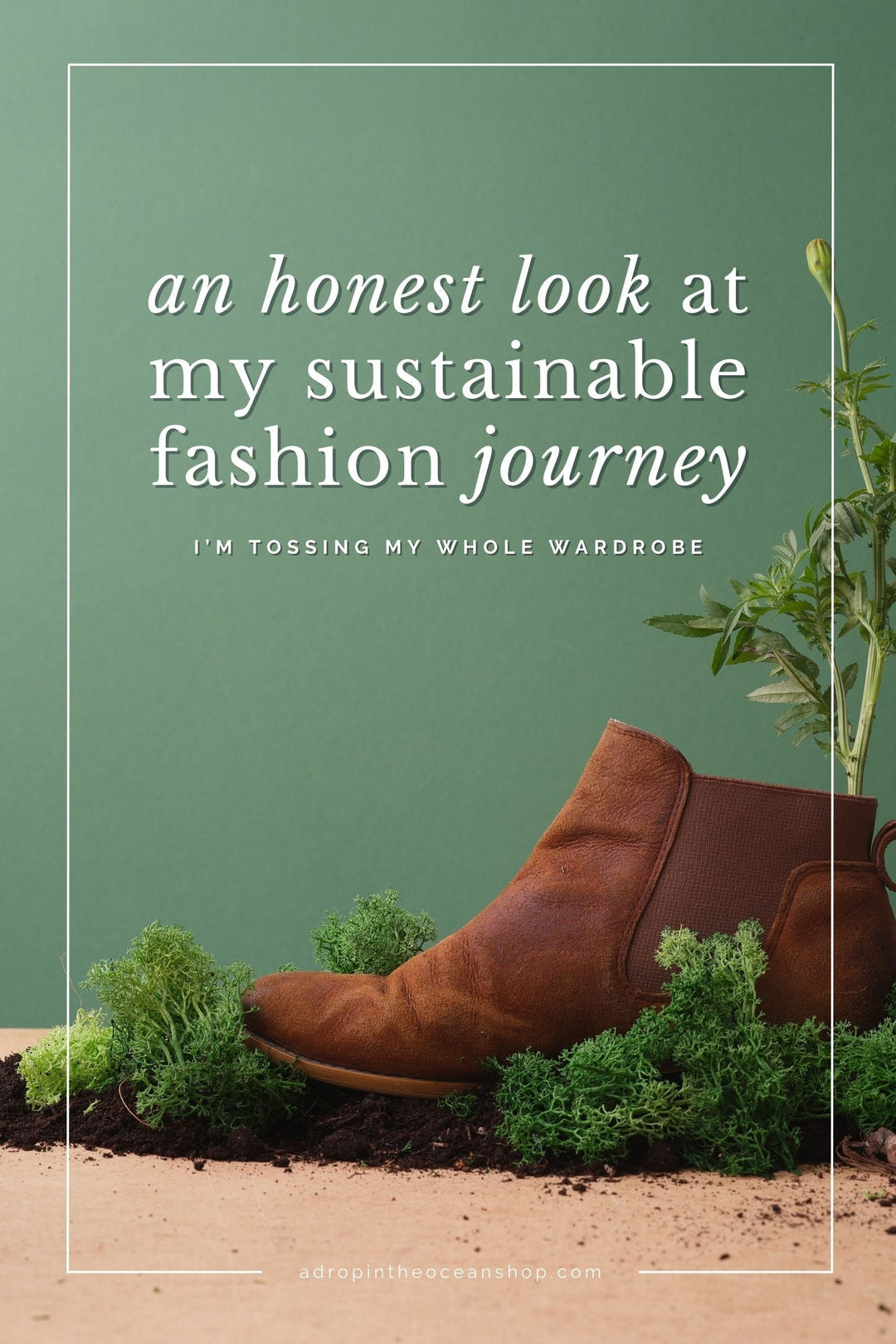
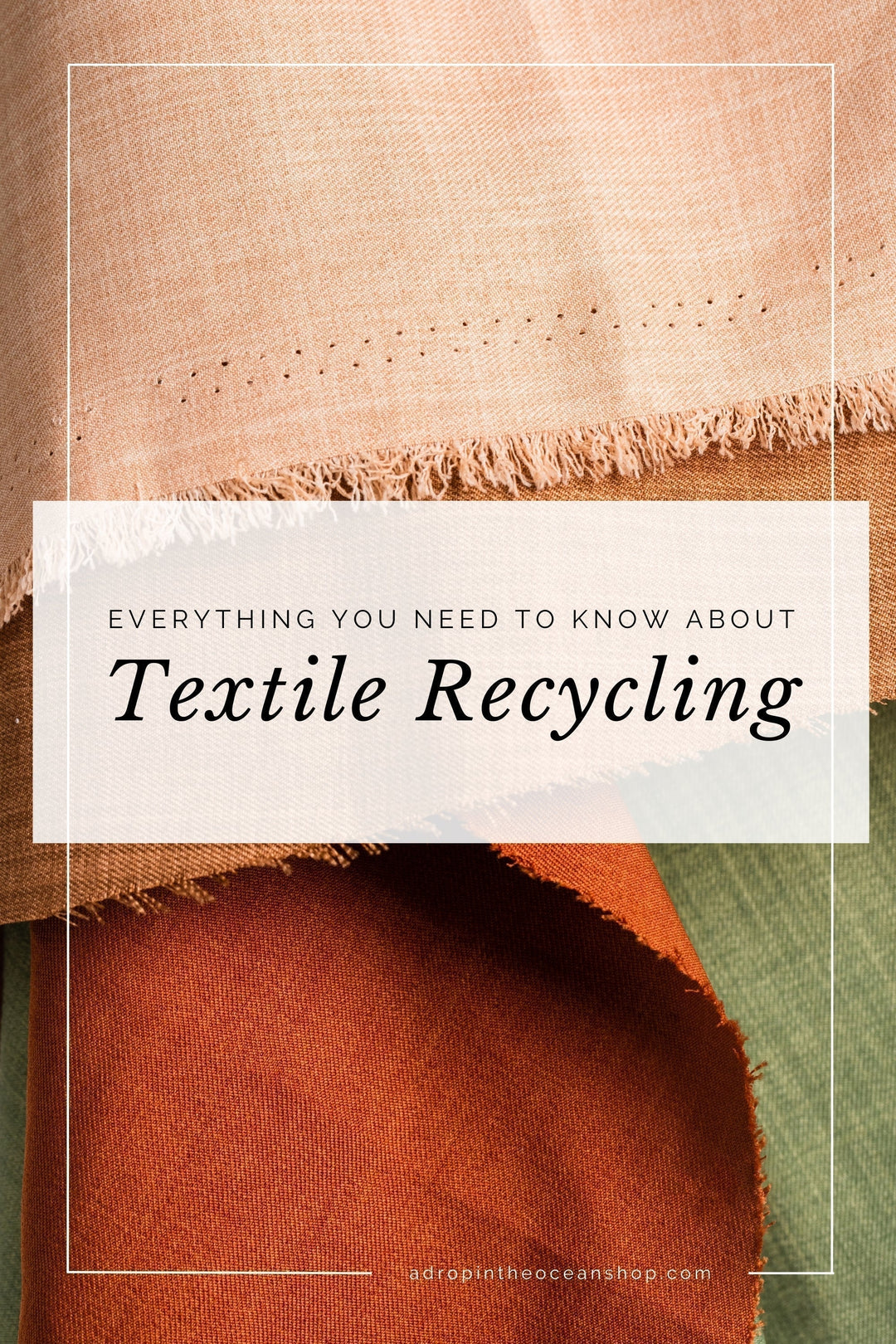
@Susan — Dropps uses PVA for their pods, but Blueland uses PLA for their “biodegradable and compostable” packaging. Neither of these is great, and we also have blog posts on both of them and their sustainability, which you may also find valuable! (I’ve linked them below.)
You are correct, though, that nothing is black-and-white when it comes to sustainability. And there are also many other options out there besides just Blueland and Dropps (although they’d both love for you to think that’s not the case, and their marketing definitely leans that direction.) For example, here at A Drop in the Ocean we have PVA-free dishwasher pods and laundry detergent, and have had both since before Blueland even existed.
So it’s not a good vs. bad, Dropps vs. Blueland comparison — it’s just an examination of the ethics and sustainability of Blueland on its own, so that you and other EcoWarriors can make informed buying decisions based on your own values and standards 💙 I’m always happy to answer any other questions, too, so feel free to shoot me an email any time!
💙 Krystina (Founder + CEO)
PVA Blog Post: https://adropintheoceanshop.com/blogs/blog/what-is-pva
PLA Blog Post: https://adropintheoceanshop.com/blogs/blog/is-bioplastic-the-answer
Some of what you say makes sense but Dropps uses plastic pods for dishwasher and laundry at least with Blueland they use no plastic pods. There are some good and bad to both.
Leave a comment